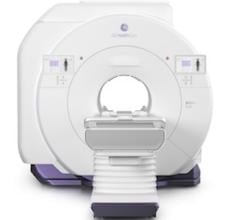
Getty Images
August 14, 2020 — Smoking is strongly linked to lower use of cancer screening services by women, and more advanced disease once cancer is diagnosed, reveals research published in the online journal BMJ Open.
Tobacco use is falling in many parts of the world, but it's falling less rapidly among women than it is among men. And lung cancer remains the leading cause of cancer death among women, say the researchers.
The evidence also suggests that women underuse cancer screening services, so the researchers wanted to find out if lower take up of these services might be linked to active smoking.
They drew on survey responses from 89,058 women who had gone through the menopause and were taking part in the nationally representative Women's Health Initiative Observational Cohort (WHI-OS) study.
Among the 89,058 participants, more than half (53%) had never smoked; 41% were ex-smokers; and 6% were active smokers, although nearly half (49.5%) had stopped smoking by the time of the last data collection.
Their health and use of cancer screening services were tracked for an average of nearly 9 years, during which time 7054 cases of breast cancer, 1600 cases of bowel cancer, and 61 cases of cervical cancer were diagnosed.
Former smokers were more likely than non-smokers to regularly attend cancer screening appointments. But current smokers were significantly less likely to do so.
"Concern for personal health is the most common reason given for smoking cessation among former smokers, and may explain why this health-conscious population seeks cancer screening more frequently than never smokers," suggest the researchers. "On the contrary, smokers are overly optimistic about their health and consistently underestimate the magnitude of their cancer risk," they add.
Compared with women who had never smoked, current smokers were 45% less likely to get screened for breast cancer, 47% less likely to get screened for cervical cancer, and 29% less likely to get screened for bowel cancer.
And the higher the daily tally of cigarettes smoked among both former and current smokers, the less likely were these women to use cancer screening services.
Failure to regularly attend screening appointments was also associated with more advanced disease at diagnosis, with current smokers nearly 3 times as likely to be diagnosed with late stage breast cancer, and more than twice as likely to be diagnosed with late stage bowel cancer as those who had never smoked.
This is an observational study, and as such, can't establish cause. Participants included only postmenopausal women and relied on subjective reporting, note the researchers.
Nevertheless, they conclude: "Active smoking is associated with decreased use of breast, colorectal, and cervical cancer screening services in a dose dependent manner.
"Additionally, while cancer screening is important for avoiding late-stage presentation in patients of all smoking statuses, active smokers without appropriate screening have significantly higher odds of being diagnosed with advanced breast or colorectal cancer."
Doctors should emphasise the importance not only of giving up smoking, but also of making use of cancer screening services in this group of high risk women, they advise.
For more information: www.bmj.com


 February 20, 2026
February 20, 2026 









